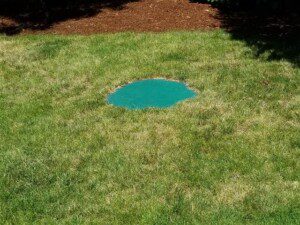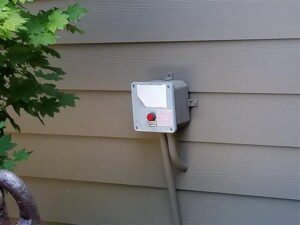
The ultimate purpose of a septic system is to filter out solids from the wastewater and most septic systems are composed of a septic tank and a drain field combination. The septic tank is a place where the wastewater gradually settles into either scum, liquid, or sludge.
Scum is is mostly composed of grease and oils and this floats on top of the water in the septic tank. After it has settled, the liquid, also known as effluent, drains through perforated pipes in the drain field before evaporating up through the surface of the soil. Sludge remains on the bottom of the septic tank after it has settled and is composed of mostly solids. Both sludge and scum remain in the tank after effluent has drained out and need to be pumped out regularly. The schedule of when these need to be pumped is determined by the size of the septic tank, size of the home, and number of people in the home.

Septic Alarm
While septic systems can be very effective, they do require regular maintenance and inspection to ensure that they do not become defective and result in unsatisfactory conditions. Some typical signs of a septic system in need of repair or further investigation are:
1. Green patches of grass near the septic tank or absorption field
2. Sewage leakage around or near the septic tank
3. Wastewater backing up into the home
4. Bad odors around the septic tank and absorption field
These signs can indicate that a septic system has failed or needs immediate attention from a septic contractor. Regular maintenance can help to prevent severe issues and unsanitary conditions.
In addition, do not put anything into your wastewater system to the septic tank that may lead to a clog such as dental floss, baby wipes, organic material from garbage disposals, etc. Anything other human waste or toilet paper can result in problems for your septic system.
